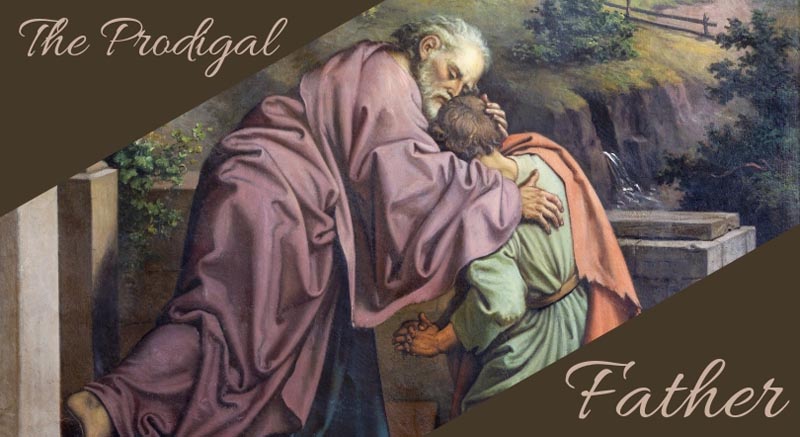Fourth Sunday of Lent
Call to worship
As the loving father waits with patience and welcomes back the son who has squandered his inheritance, so, too, does God generously welcome us home — no matter who we are, or what we have done.
- To the point: This familiar parable is often referred to as the parable of the prodigal (wasteful) son. On one hand, the younger son is prodigal when he prodigiously squanders his inheritance. On the other hand, the real prodigality of the son lay in that he loved his life enough to swallow his pride, return home, and throw himself on the mercy of his father. The father, too, is prodigal: he welcomes him as son, clothes him in the finest array, and throws a lavish feast. He gave him new life. This is the most prodigal act possible: to give new life.
- Connecting the Gospel (Luke 15; 1-3, 11-32) to the second reading: Paul reinforces what the gospel parable points to: sureness in the Father’s prodigiousness — “new things have come.” As the younger son is reconciled with his father, we are all reconciled to God “through Christ.”
- Connecting the Gospel to experience: Good parents spare nothing for their children’s sake… sometimes even being prodigious beyond their means. How much more so is our loving Father prodigious with us!
Centering prayers
The Gospel
(Luke 15: 1-3, 11-32)
The Pharisees and scribes began to complain, saying,
“This man welcomes sinners and eats with them.”
Jesus, are you a prodigal son?
Did you waste your life on us?
Or:
God, are you the prodigal father,
overflowing with love,
who runs to meet us, embraces,
and kisses us, killing the fatted calf for us?
Prodigal Son, Prodigal Father, and Prodigal Holy Spirit,
we are filled with awe and wonder at the love you squander on us.
The First Reading
(Joshua 5: 9a, 10-12)
On that same day after the Passover, on which they ate
of the produce of the land, the manna ceased.
O God, caring for them all the way,
you brought the Israelites safely home.
As it was in the beginning, is now, and ever shall be,
you bring us all home through your son, the Christ, Jesus.
Thank you for the grace you pour into our hearts.
Please walk with our Ukrainian brothers and sisters
and bring them safely home, too.
The Second Reading
(2 Corinthians 5: 17-21)
For our sake he made him to be sin who did not know sin,
so that we might become the righteousness of God in him.
The poet says, “I am all at once what Christ is,
since he was what I am.”*
We know also, that we are your body now.
We are your hands, feet, voice and heart now.
Let us help bring about a resurrection
to all that is still dead.
* G.M. Hopkins, “That Nature is a Heraclitean Fire.”
Copyright © 2022, Anne M. Osdieck
Music for reflection
